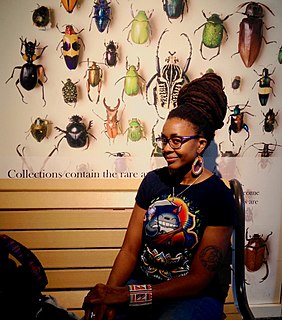A Quote by Hugh Masekela
It's obvious that the rest of the world loves high African culture - African culture, period.
Quote Topics
Related Quotes
One of the things that made the Black Muslim movement grow was its emphasis upon things African. This was the secret to the growth of the Black Muslim movement. African blood, African origin, African culture, African ties. And you'd be surprised - we discovered that deep within the subconscious of the black man in this country, he is still more African than he is American.
Flamenco is connected with so many types of music. It has Jewish culture inside, Arabian culture inside, Russian culture inside, Spanish culture inside. It's linked to African music too, because African music has the 'amalgama' rhythms you can find in flamenco. You can find everything in flamenco. That's why it's so beautiful.
For the first time since I began acting, I feel that I've found my place in the world, that there's something out of my own culture which i can express and perhaps help others preserve..i have found out now that the African natives had a definite culture a long way beyond the culture of the Stone age...an integrated thing, which is still unspoiled by western influences...I think the Americans will be amazed to find how many of the modern dance steps are relics of African heritage.
So in Jamaica it is the aim of everybody to talk English, act English and look English. And that last specification is where the greatest difficulties arise. It is not so difficult to put a coat of European culture over African culture, but it is next to impossible to lay a European face over an African face in the same generation.
It seemed [there are] musical nodes on the planet where cultures meet and mix, sometimes as a result of unfortunate circumstances, like slavery or something else, in places like New Orleans and Havana and Brazil. And those are places where the European culture and indigenous culture and African culture all met and lived together, and some new kind of culture and especially music came out of that.




































